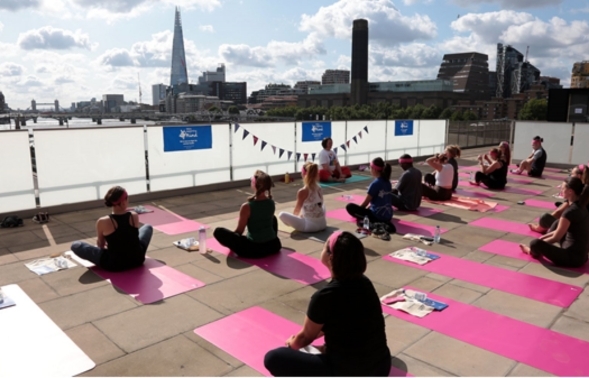Female employees are hiding their symptoms and discomfort to avoid discrimination in the workplace due to menopause, research by leading Sussex law firm Mayo Wynne Baxter has revealed.
A new survey, conducted by the firm, shows that despite increased awareness by celebrities such as Davina McCall, women experiencing peri-menopause and menopausal symptoms are still embarrassed to talk about it at work (39%), and are in favour of additional menopause support from employers (60%).
Employment law experts at Mayo Wynne Baxter are calling for the implementation of menopause champions in all workplaces, to raise awareness of the many ways in which menopause impacts women at work and to ensure that all women know their workplace rights.
Despite it being their right, less than a third (29%) of women would feel comfortable asking for reasonable adjustments to support symptoms, such as an electric fan or flexible working hours. Less than half of women (49%) would feel able to raise a formal complaint if they felt they were being discriminated against as a result of experiencing menopause.
Samantha Dickinson, diversity and inclusion partner at Mayo Wynne Baxter, said: "The symptoms of menopause can affect the physical and mental health of women so badly, that it can drive many to thoughts of suicide.
"At the same time, employers are facing challenges in recruiting and retaining talent and there is an increasing number of economically inactive people, aged 50 to 69.
"If women experiencing menopause are provided with a supportive work environment, that will support the retention and attraction of experienced women.
"Menopause champions in the workplace would help women feel more comfortable raising concerns, but importantly it will also ensure that employers know how to offer the right support from the start.
"It was a bitter disappointment when the Government refused to make the menopause a protected characteristic, slamming the door shut in the face of progress and betraying a total lack of empathy."
According to research, less than half of women (42%) feel comfortable taking time off work for menopause-related symptoms, and if they were to take time off, almost half of women surveyed (48%) admitted they would lie about the reason.
Despite the Government's renewed focus on supporting the over 50s back into the workforce, little has been done to mandate menopausal support and awareness in the workplace.
Mayo Wynne Baxter research shows that lack of flexibility is a barrier, with over a third of women (37%) saying that menopausal symptoms would prevent them from re-entering the workforce.
Dickinson added: "It is very sad to learn that half of women surveyed (44%) think that going through menopause will negatively affect their career, which is why so many women choose to remain silent.
"Employers should consider how they can create an environment where women feel comfortable to express their experience of the menopause and feel they can raise concerns with confidence.
"While disappointingly menopause itself is not a protected characteristic, there are still legal protections in place that women may be able to rely on, to safeguard against discrimination. Under the Equality Act, women can bring a sex, age, or disability claim if they think their employer has disadvantaged them for a reason related to menopause."

















